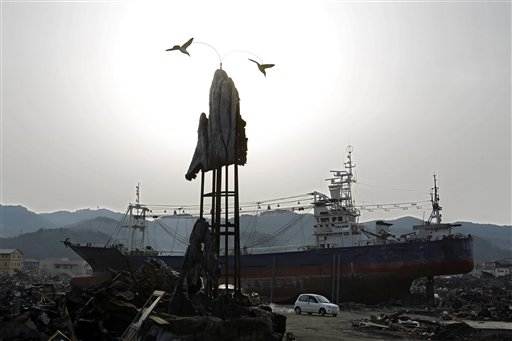SNIP-
This will be the century of disasters.
In the same way that the 20th century was the century of world wars, genocide, and grinding ideological conflict, the 21st will be the century of natural disasters and technological crises and unholy combinations of the two. It'll be the century when the things that we count on to go right will, for whatever reason, go wrong.
Late last month, as the Mississippi River rose in what is destined to be the worst flood in decades, and as the residents of Alabama and other states rummaged through the debris of a historic tornado outbreak, physicists at a meeting in Anaheim, Calif., had a discussion about the dangers posed by the sun.
Solar flares, scientists believe, are a disaster waiting to happen. Thus one of the sessions at the American Physical Society's annual meeting was devoted to discussing the hazard of electromagnetic pulses (EMPs) caused by solar flares or terrorist attacks. Such pulses could fry transformers and knock out the electrical grid over much of the nation. Last year the Oak Ridge National Laboratory released a study saying the damage might take years to fix and cost trillions of dollars.
'Black swan' events
All of these things have the common feature of low probability and high consequence. They're "black swan" events. They're unpredictable in any practical sense. They're also things that ordinary people probably should not worry about on a daily basis. You can't fear the sun. You can't worry that a rock will fall out of the sky and smash the earth, or that the ground will open up and swallow you like a vitamin. A key element of maintaining one's sanity is knowing how to ignore risks that are highly improbable at any given point in time.
And yet in the coming century, these or other black swans will seem to occur with surprising frequency. There are several reasons for this. We have chosen to engineer the planet. We have built vast networks of technology. We have created systems that, in general, work very well, but are still vulnerable to catastrophic failures. It is harder and harder for any one person, institution, or agency to perceive all the interconnected elements of the technological society. Failures can cascade. There are unseen weak points in the network. Small failures can have broad consequences.
Most importantly: We have more people, and more stuff, standing in the way of calamity. We're not suddenly having more earthquakes, but there are now 7 billion of us, a majority living in cities. In 1800, only Beijing could count a million inhabitants, but at last count there were 381 cities with at least 1 million people. Many are "megacities" in seismically hazardous places—Mexico City, Caracas, Tehran, and Kathmandu being among those with a lethal combination of weak infrastructure (unreinforced masonry buildings) and a shaky foundation.
END SNIP - http://www.msnbc.msn.com/id/43034779/ns/slatecom
Last edited by HigherLove on Sun May 15, 2011 12:46 am; edited 1 time in total












